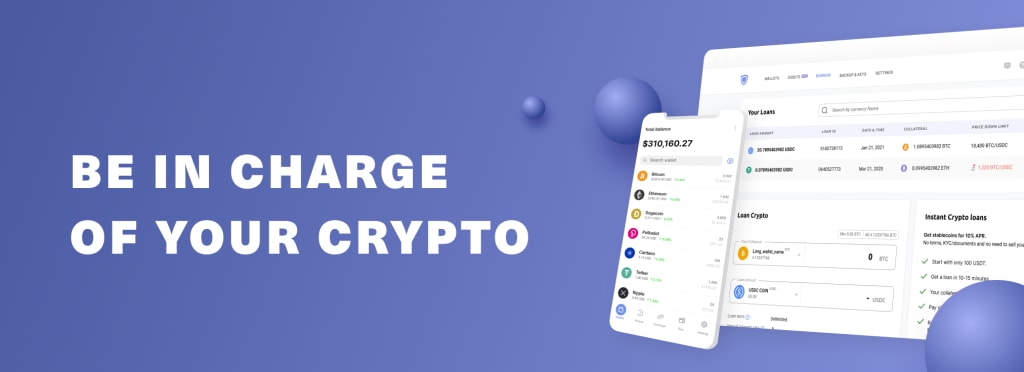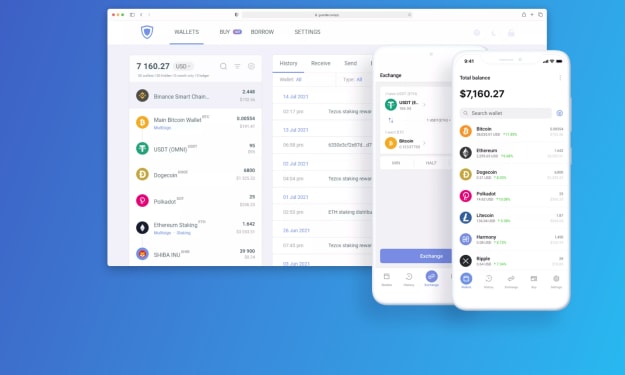Demystifying Crypto Fees
Discover why certain crypto fees exist and how they work. Get an in-depth look at the different types of fees associated with cryptocurrency and the information you need to make informed decisions about your crypto investments

Welcome to the exciting world of blockchain, where decentralization, security, and transparency reign supreme. As an integral part of this ecosystem, various crypto fees often come into play when engaging with various cryptocurrencies. Today, we'll demystify several types of fees and help you better understand their role in the blockchain universe.
When dealing with cryptocurrencies, various fees may apply when buying, exchanging, or selling assets. These fees can differ depending on the type of crypto asset and the platform or service being used. Some common crypto fees include:
1. Flat fees and percentage fees: When buying or selling cryptocurrencies, you may encounter flat fees or percentage fees. For example, one leading exchange charges a flat fee of $0.99 for trades below $10 and higher fees for larger trades. Percentage fees, such as maker/taker fees, are also common on crypto exchanges.
To help you start with crypto or enhance your crypto portfolio, Guarda Wallet and Simplex launched an exciting promotion - you can buy BTC, ETH and LTC with ZERO FEES when paying EUR! Just go to Guarda Wallet, create your own Bitcoin, Ethereum or Litecoin wallet, navigate to the ‘Buy’ section, and enjoy no fees on your purchases. More you can find more information here.
2. Trading fees: Cryptocurrency exchanges often charge trading fees on both fiat-crypto and crypto-crypto trades. These fees serve as the primary source of revenue for exchanges and can vary depending on the platform and the user's trading volume.
3. Maker and taker fees: Many crypto platforms, particularly exchanges, operate using a maker-taker fee system. Maker fees are charged to those who create liquidity on the platform, while taker fees are charged to those who remove liquidity. These fees are typically a percentage of the transaction value and can differ among platforms. For example, Crypto.com charges both makers and takers 0.075% at the basic Level 1.
4. Deposit and withdrawal fees: Some exchanges charge fees for deposits and/or withdrawals of cryptocurrency assets. These fees can vary depending on the coin, network, and the platform being used. However, certain platforms, such as Crypto.com, do not charge deposit fees for cryptocurrency assets or U.S. dollar fiat currency deposits via ACH or wire transfer.
5. Network fees and transfer (wallet) fees: When investing in cryptocurrencies, you'll likely come across exchange fees, network fees, and transfer (wallet) fees - crypto users tend to face them most often. Network fees are charged by the underlying blockchain network for processing transactions, and transfer fees may apply when moving cryptocurrencies between wallets.
It's essential to be aware of the various fees associated with buying, exchanging, and selling cryptocurrencies to make informed decisions when trading. Different platforms offer different fee structures, so comparing them can help you find the most cost-effective solution for your needs. Let’s dive deeper in the network fees concept.
What are Network Fees?
Network fees, sometimes referred to as "gas" or "transaction fees," are a necessary component of blockchain transactions. These fees are paid to miners who validate and process transactions on the blockchain. Without network fees, miners would lack the incentive to maintain the network, which could lead to slower transactions and reduced security.
Why are Network Fees Important?
Network fees serve several crucial functions in the blockchain ecosystem:
- Incentivize miners: As mentioned earlier, network fees provide the motivation for miners to validate and process transactions, ensuring the stability and security of the network.
- Prevent network spam: By implementing a fee structure, blockchain networks discourage users from flooding the network with low-value or spam transactions, ensuring network resources are used efficiently.
- Determine transaction priority: Network fees help prioritize transactions within the blockchain network. Transactions with higher fees are typically processed faster, while those with lower fees may take longer.
Factors Influencing Network Fee Amounts
Network fees are not static; they can vary based on several factors, including:
- Network congestion: During periods of high network traffic, network fees may increase as users compete to have their transactions processed quickly.
- Transaction size: Larger transactions often require more computational power to process and validate, which can result in higher network fees.
- Cryptocurrency in question: Different cryptocurrencies have different fee structures, with some being more cost-effective than others.
How to Minimize Network Fees
As a savvy blockchain enthusiast, you may be wondering how to reduce your network fees without compromising on transaction speed or security. Here are some tips to help you minimize fees:
- Choose a wallet with custom fee settings: Select a crypto wallet, like Guarda Wallet, that allows you to customize your network fees, giving you greater control over the fees you pay.
- Opt for off-peak transaction times: If your transaction isn't time-sensitive, consider waiting for periods of lower network congestion to benefit from reduced fees.
- Utilize layer-2 solutions: Layer-2 solutions, such as the Lightning Network for Bitcoin, can help minimize network fees by processing transactions off the main blockchain.
The Bottom Line
Network fees are a fundamental aspect of the blockchain ecosystem, ensuring transaction processing and network security. By understanding the factors that influence these fees and how to minimize them, you can make more informed decisions and optimize your blockchain experience.
We hope this article has shed some light on the mysterious world of crypto fees. Stay tuned for more insightful articles and tips from Guarda Wallet, your trusted partner in navigating the ever-evolving landscape of cryptocurrencies and blockchain technology.
About the Creator
Guarda Wallet
Guarda Wallet is a non-custodial crypto wallet which supports 60+ blockchains and more than 400,000 assets. Follow for educational crypto content!






Comments
There are no comments for this story
Be the first to respond and start the conversation.